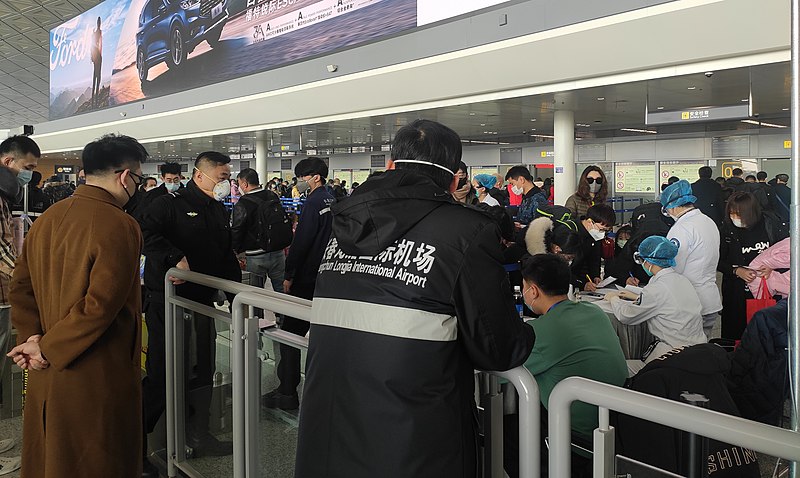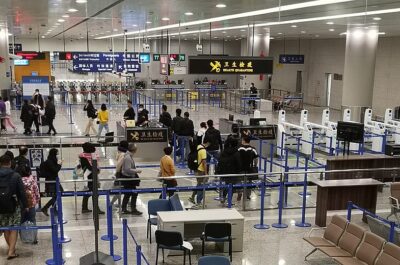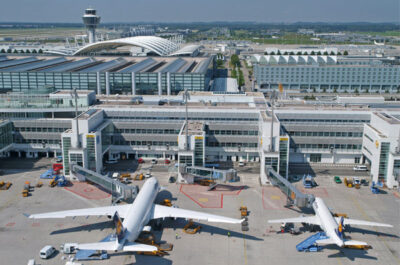
Health check at Changchun Longjia Airport Terminal 2, China.
Only European airlines with strong shareholder backing and full access to capital markets are likely to survive the industry’s latest crisis, with the spread of the Covid-19 virus threatening more carriers in the region and abroad, says Scope Ratings.
Financial troubles at Flybe, the British regional carrier which ceased operations Thursday, predate the December outbreak of the coronavirus which has led to a dramatic slump in demand for air travel and disrupted air cargo services worldwide – but they are an indication of the extreme pressure indebted airlines face.
“Our credit outlook for the fragmented European aviation was negative independent of the impact of Covid-19 given the sector’s ample spare capacity, downward pressure on ticket prices from fierce competition, rising wages and other costs – in addition to previous signs of slowing traffic as economic growth has slowed,” says Azza Chammem, analyst at Scope.
“The continuing spread of the coronavirus in Europe just worsens the situation for the industry,” says Chammem. “We expect a similar trend in Asia.”
“Flybe had been hoping for some measure of government support to stay in business – also the case for other airlines – but government priorities are now focused on containing the spread of the virus among their citizens,” says Chammem.
One area where governments might be willing to come to the aid of the industry is in postponing tax increases and relaxing regulations.
“The International Air Transport Association (IATA) is calling governments to support the industry by postponing the increase or the introduction of the aviation tax in certain countries and/or relaxing rules on the minimum usage of airport take-off and landing slots required of airlines at airports to avoid having to relinquish them,” says Chammem.
The full impact on airline profitability is difficult to assess for the time being considering it is not clear whether the epidemic in several countries becomes a global pandemic. Nevertheless, with revenue under intense pressure, airlines are taking countermeasures, from asking employees to take unpaid leave, freezing new hiring and reducing schedules to curbing non-urgent spending.
“The decline in fuel costs will benefit some carriers that survive into 2021 though those airlines with active hedging policies which locked in higher prices will miss out on the full benefit,” says Chammem. The average jet fuel price was 28% lower 28 February than a year before according to IATA’s jet fuel monitor as oil prices have fallen to USD 50 a barrel or lower in recent weeks.
“For now, cash is king,” says Chammem. As revenues fall, airlines will rely on their liquidity reserves and look at ways to raise additional capital via existing credit facilities or private means of financing while reducing expenditure.
The ability to raise debt in public market and presumably higher risk premiums will affect even investment grade companies like Deutsche Lufthansa (BBB/Stable). Lufthansa sought this week to increase cash reserves through a EUR 200m deal on the Schuldschein private debt market where it has been an active issuer in the past.
Tatiana is the news coordinator for TravelDailyNews Media Network (traveldailynews.gr, traveldailynews.com and traveldailynews.asia). Her role includes monitoring the hundreds of news sources of TravelDailyNews Media Network and skimming the most important according to our strategy.
She holds a Bachelor's degree in Communication & Mass Media from Panteion University of Political & Social Studies of Athens and she has been editor and editor-in-chief in various economic magazines and newspapers.



























































































































































































































